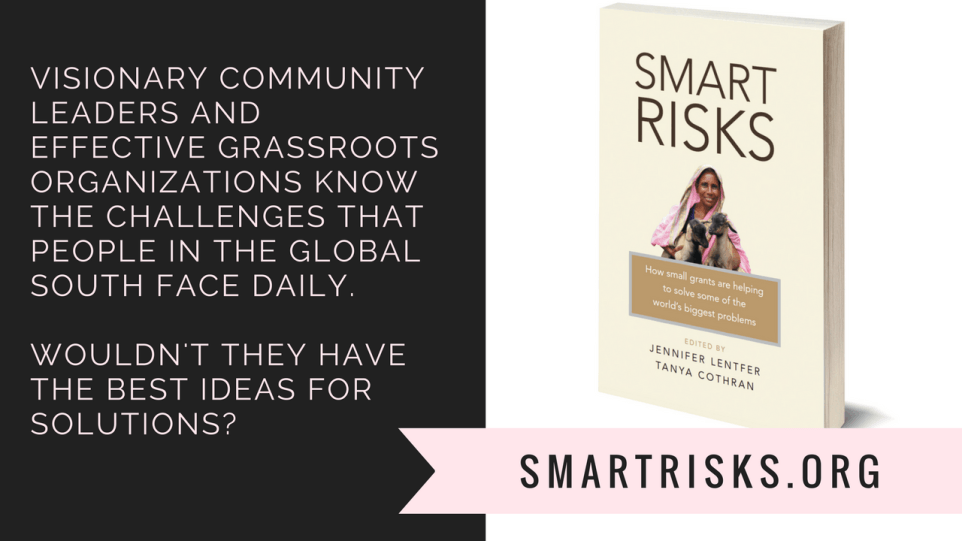 Jeanné Isler wrote “Nonprofits, philanthropy needs you to be brave” on the National Committee for Responsive Philanthropy blog last week. It seems only fair that the reverse piece gets written, right?
Jeanné Isler wrote “Nonprofits, philanthropy needs you to be brave” on the National Committee for Responsive Philanthropy blog last week. It seems only fair that the reverse piece gets written, right?
Speaking truth to power is something to which I have always aspired. But having had experience as both a grant seeker and grant maker over the years, it’s funders who I look to for bravery first. And because of the power they hold, it may feel even more vulnerable from where they sit. But here’s the courage we need to see from funders:
1. Say no faster.
What other people are doing to make their contribution to the world will often not fit with your priorities or your interests. If you know the answer is “no”, be brave enough to offer it quickly and gracefully. Respect the vulnerability, but also the resilience, of those doing the asking. Don’t always assume that you are that important.
Funders, don’t pour water on the fires that people are working hard to build. If you don’t have the wood or kindling to give, just let the change-makers get on with collecting it elsewhere.
2. Give no strings attached funding.
Core, general operating support, unrestricted – whatever you funders call it, it matters. It means you don’t dictate what activities and strategies nonprofits use, freeing them up to listen more closely to the community. If nonprofit partners want to pay the light bill, or start a new program, brave funders can leave it up to them.
The people who can best solve deeply-rooted social, political, and economic problems are the people whose lives are most affected by them.
3. Make multi-year commitments.
One, two, even three year timeframes may be easier to plan, manage, and evaluate, but brave philanthropists know that social transformation doesn’t happen overnight.
4. Say “I don’t know.”
This is an acceptable answer to a question. And this very much requires something different of brave funders – to step away from the usual role of “expert.” “I don’t know” is found in imprecise information, in unseen or undetectable outcomes, in continually recreating our work as we learn.
We have these conditioned tendencies that are a result of our education or training or organizational cultures. Almost all of the time, we are working to avoid being judged or seen as foolish or indecisive. Why? Because “I don’t know” is a very vulnerable place to be.
5. Tell your boss or board what’s what.
In the same way that Isler asked nonprofits to be brave in talking with their funders, I want to ask funders to be brave in advocating for their nonprofit partners within the power structures of their own organizations or institutions. Brave funders will fight for what nonprofit partners have identified as what they need to succeed. Be the voice of the shared vision in your partnerships, not the voice of bureaucratic hurdles and excuses.
6. Change who’s at the decision-making table.
Us do-gooder, over-thinking, technocratic-types fancy ourselves adept at “asking the challenging questions” of ourselves and of our organizations. But that is no longer enough. We must take concrete actions that dismantle the internal and external power structures that perpetuate inequality and bigotry in aid, philanthropy, social enterprise, and impact investing.
There is a lot of work to do.
7. Have your partners evaluate you!
How does a brave funder perform? Many donors have rigorous models of measuring programs implemented by their partners, but offer brave funders make opportunities for that evaluation to also flow the other way.
I say nothing new here with these seven courageous acts, but I will say it again and again until it becomes unnecessary or irrelevant. Sometimes courage is about persistence in the face of adversity, something I learn again and again from already brave nonprofit partners.
***
***
Related Posts
Does aid need a 12-step program?
A new kind of donor: 4 things they do differently
Building a Fire: Thinking twice about how we look at organizational capacity assessment
If the revolution will not be funded, what can we do?
“Create” nothing, a new social good mantra
To change the world, a pulse is required
Subjective, squishy, touchy, feely, and fundamental: Partnership matters


